THE UNEXPECTED RELATIONSHIP BETWEEN RICK AND MORTY AND THE WORLD OF TOLKIEN
Reading The Book of Lost Stories and watching the current Rick and Morty season together has opened doors that are surely useless in my head.
In 1977 El Silmarillion, a collection of works by J. R. R. Tolkien edited by his son Christopher, was published posthumously. To do so, as he himself would later affirm, meant giving a definitive character to the stories contained therein; to remedy this, he published the 12 volumes of History of Middle Earth.
In the first, entitled The Lost Story Book I, Christopher mentions something worth discussing:
The study of Middle Earth and Valinor is, therefore, complex; because the object of the study was not stable, and exists, so to speak,"longitudinally" in time (the course of the author's life), and not only transversally in time as a printed book that will no longer change in anything essential.
Publishing a dozen books at the expense of his father's legendarium (Tolkien used the term to refer to his works in several letters he wrote) can be considered a ruse for money, of course. But regardless of the reasons that have led Christopher to dedicate his entire life to compiling and publishing his father's work, the above point is almost as valid as it is intriguing.
Valid because it adds dimensions to what we know about Tolkien as an author, and intriguing because it seems to "update" the concept of Middle Earth and Valinor: because that is very similar to the existence of the multiverse.
Infinite possibilities
The term "multiverse" was used in 1895 by the psychologist William James, and is used to define the set of multiple existing universes, according to hypotheses that assert that there are universes different from our own.
Although as a theory it has been present for more than one hundred years, it has become fashionable lately thanks to Rick and Morty's intellectual fandom psudo-intellectual, among which I am included, without offense. It's a familiar concept from Rick Potion #9 (where everything goes to shit).
From now on, the series introduces concepts such as the Ricks Citadel and the existence of infinite realities (and the fracture of these, as in A Rickle in Time).
It's not something new, of course: in the comic book world it's been used and re-used to the point of exhaustion, both by Marvel and DC. But, as I said in principle, my reading of Tolkien coincided with the third season of Rick and Morty triggered a trigger that I can't get rid of. Because I doubt very much that Tolkien has done it consciously, as he does with Dan Harmon and Justin Roiland.
The thin ethical line
Tolkien's is similar to what any writer does when he prepares a work: writing different versions, making changes, discarding chapters, characters... Is there ethics in publishing a whole body of work that he probably would not have wanted to bring out, at least in the incomplete version in which he was left after his death?
There are discussions about posthumous publication, especially since it is never possible to determine how much survives from the author's original vision if he left the work incomplete and disordered. In Tolkien's case it becomes even more complicated, as El Silmarillion's first drafts date back to 1925, henceforth encompassing the entirety of his life.
But that discussion does not concern us right now.
Tracking a long evolution
The number of versions is due to the fact that in the conception of the history of Middle Earth there was seldom development by direct discarding, as Christopher affirms in his prologue to the Lost Tales: subtle transformations were produced in stages, so that the formation of legends resembles the formation of legends among peoples, product of many people and many generations.
There is some magic in seeing a monstrous cat possessed by a demon being Sauron's forerunner in the Ballad of Leithian, long before it became Melkor's necromancer; also in discovering small references in El Silmarillion to Eriol the Sailor, who does not appear in the canon of Middle Earth, but who infiltrates it as the ghost of an underlying forgotten reality.
Does this mean that anyone who writes a novel is creating a multiverse of his own? No. The special thing about the legendarium is that Tolkien, instead of discarding versions, kept all the writing without leaving even a notation indicating which version was "correct" (if any). In addition, I used to write the same thing in different formats: sometimes as a ballad in regular verse, or in prose, or in fairytale.
Christopher refers to it in the following way (again, in the first pages of the Stories Lost, after talking about the tale of The Fall of Gondolín):
But these old manuscripts are not only of interest for the study of origins. My father (as far as I know) never expressly rejected much of what is found there, and it should be remembered that El Silmarillion, from the 1926 draft onwards, was written as a summary or epitome, giving the substance of much more extensive works (whether or not they actually existed) in a shorter frame.
The Sand Book
This gives the reader the possibility to construct his or her own version of the facts; to "visit", to put it in some way, the universe of his or her choice within the narrative. It is a fact that gives the work an unusual depth, because it makes it unfold infinitely, or at least to a considerable extent.
Although it is not The Sand Book that is spoken of in Borges' eponymous tale, Tolkien's legendarium is there as a source of overflowing imagination (a dull and uncreative analogy in comparison, but, in short, something that comes very close to it).
But, of course, all this is a hypothesis of someone who has seen too much television lately and who has only read the first volume of Middle-Earth history. And it is also a hypothesis that, beyond being curious, it is of no use at all, is it not? In any case, it's always fun (especially if you get to it through Rick and Morty). After all, such dissections turn fantasy into what it is.
Our dear professor said so in his essay on fairy tales:
Fantasy is a dangerous land, with traps for the unwary and dungeons for the reckless. (...) Wide, high and deep is the kingdom of fairy tales, and filled with diverse things: there are all kinds of beasts and birds there; seas without shores and countless stars; beauty that bewitches and always present danger; joy, as well as sadness, are sharpened like swords. Perhaps a man may be blessed to have wandered in that realm, but his own fullness and arcane condition bind the tongue of the traveler who wishes to describe him. And while he is in it, he finds it dangerous to ask too many questions, lest the doors close and the keys disappear.
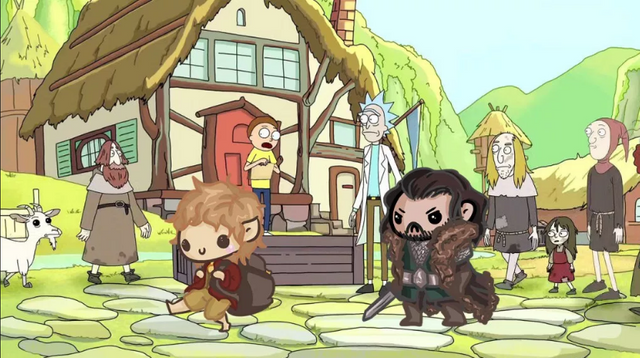
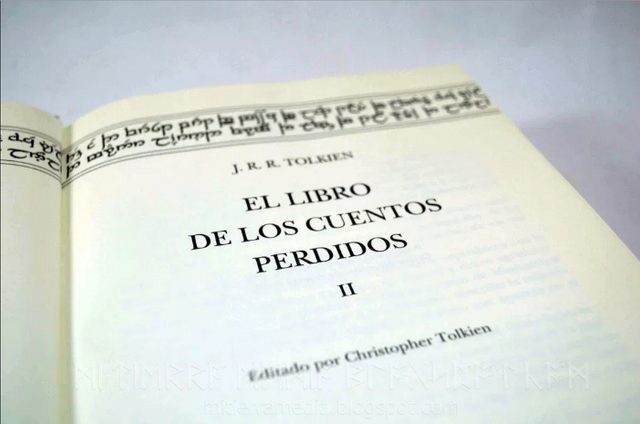
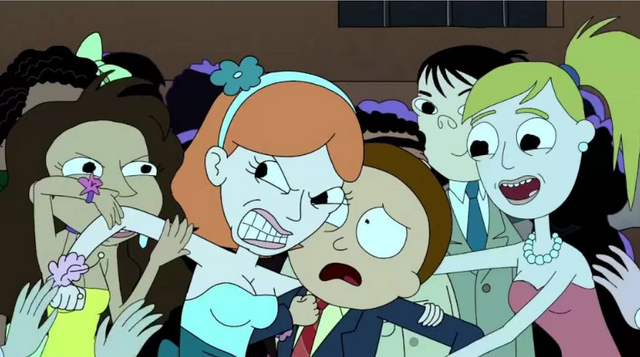
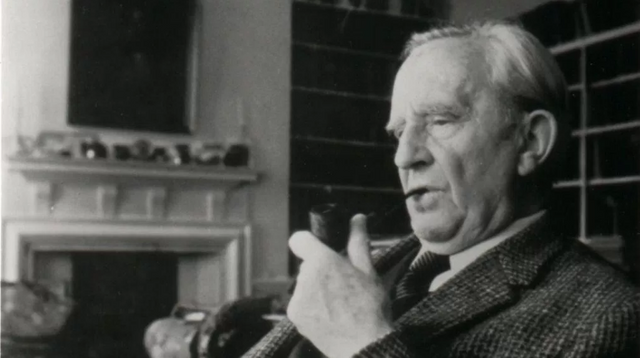
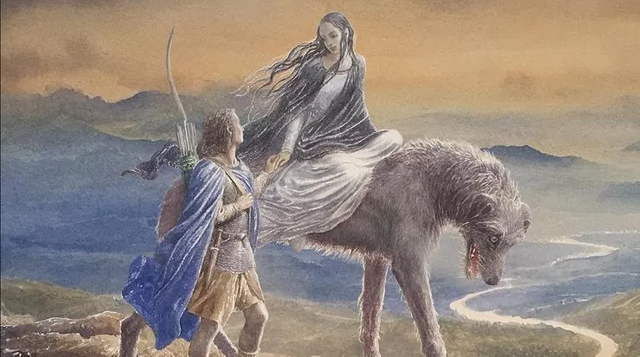
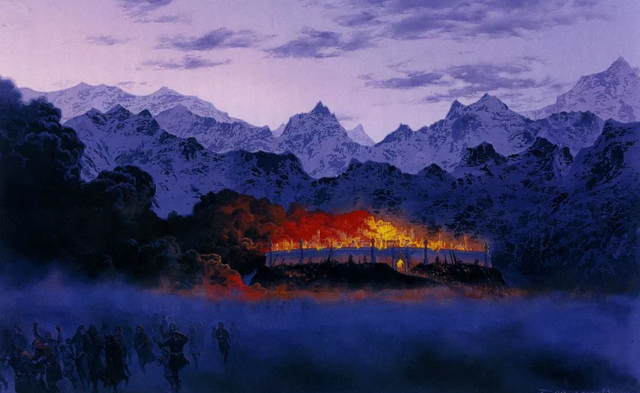
Congratulations @sectorlsd! You have completed some achievement on Steemit and have been rewarded with new badge(s) :
Click on any badge to view your own Board of Honor on SteemitBoard.
For more information about SteemitBoard, click here
If you no longer want to receive notifications, reply to this comment with the word
STOP